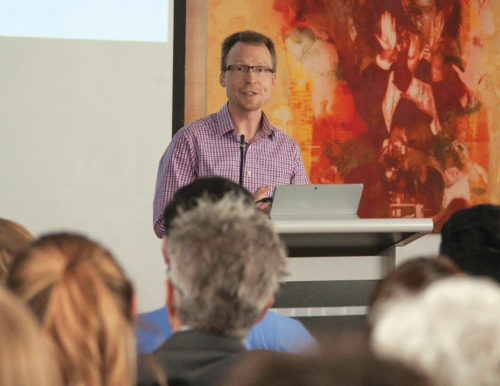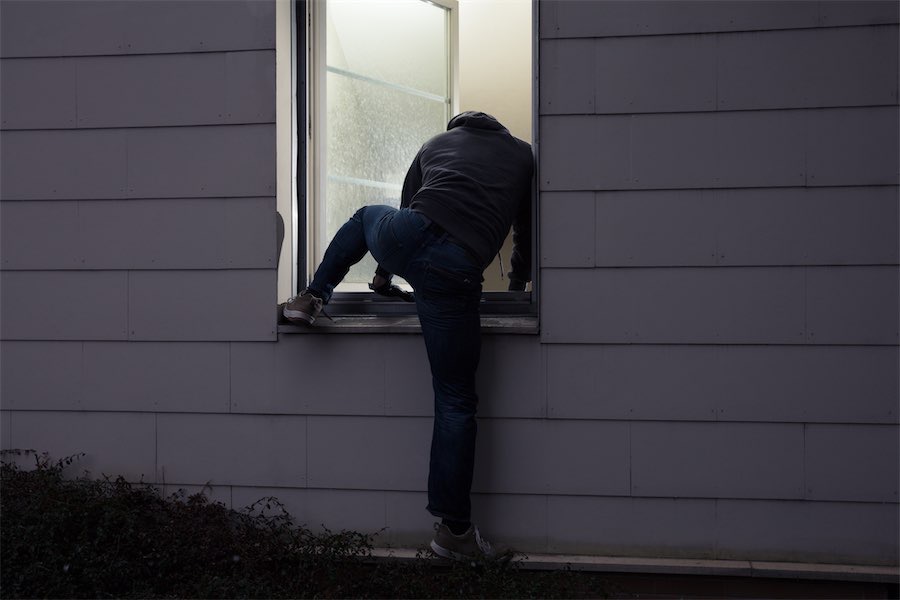Let’s get talking about mental health. In this sponsored post, “CityNews” speaks with organisations and businesses passionate about helping people improve their wellbeing.
WITH one in five Australians experiencing a mental health issue every year, the Mental Health Community Coalition ACT wants to get people starting conversations and making connections this Mental Health Month (October 1-31).

It’s about the importance of talking to people, according to the coalition’s executive officer, Simon Viereck, who says the theme this year is “Conversations and Connection”.
“People often experience a lot of isolation and loneliness in the community,” he says.
“When you think someone is not doing well, it’s really important to ask: ‘Are you okay?’
“The next step is to listen to them and validate what they’re saying. You don’t have to try and fix their problems but listening is really important and can really help someone.”
Over the month, the Mental Health Community Coalition ACT will be running more than 40 events such as morning teas, plays and an expo before it wraps up with its ACT Mental Health Month Awards on Tuesday, October 29.
But the coalition’s flagship event is the Mental Health and Wellbeing Expo on World Mental Health Day, October 10, which will see more than 80 stalls from all sorts of mental health and wellbeing programs and groups at City Walk.
“It’s a great opportunity to see what there is and to connect with the community,” Simon says.
The coalition is also running its first peer work panel event from 12pm-3pm, at Pilgrim House, Braddon, on October 22 to showcase the experience of peer workers, researchers and sector professionals.
In a rapidly growing workplace, Maddie Cook of the Mental Health Community Coalition ACT says it’s key to embed person-first, recovery-oriented and trauma informed mental health services.
“This event is giving the community and people within the sector the opportunity to hear the stories of researchers and peer workers,” she says.
“A lot of it will be about skill building to strengthen the sector as a whole.
“Peer workers have a personal experience so will look at how peer work is going in the ACT and learn from peer workers too.”
Mental Health Community Coalition ACT, room 1.06, level 1, The Griffin Centre, 20 Genge Street, Civic. Call 6249 7756, email admin@mhccact.org.au or visit mhccact.org.au
Students paint through their problems
INK Brush Art Therapy is helping people explore any personal issues through art therapy, says owner Bella Insch.
Delivered by a team of registered art therapists, Bella says their programs are fairly unique because they combine therapeutic interventions with art making strategies.
“It is different from a regular art class or counselling session as it is facilitated by qualified allied health professionals with specialised skills in their field,” she says.
Open six days a week, Bella says the sessions run for about two hours and are open to people of all ages and abilities.
“[The sessions] promote self-reflection, self-expression and creative ways to view concerns,” she says.
“There is no right or wrong way to make art in art therapy as it’s more about the process than the product.
“It is effective for personal growth, work related issues, addictions and range of mental health issues as well as for sensory regulation and increasing fine and gross motor skills.”
Bella says the team at Ink Brush Art Therapy are passionate about putting their training and expertise into practice after seeing the positive outcomes of art therapy.
“One of the benefits of art therapy has to do with self identity,” Bella says.
“When a client can increase their confidence [and start to] see themselves as an artist, it can make a huge difference.
“For younger clients it can have a calming effect.”
Ink Brush Art Therapy, Unit 186a, 15 Coranderrk Street, Civic. Call 0450 070240, email bella@inkbrush.com.au or visit inkbrush.com.au

Counsellors welcome veterans with ‘open arms’
AUSTRALIA’S leading provider of mental health assessment, counselling and support services for veterans and their families knows the courage it can take for someone to seek help, which is why it welcomes them with “open arms”.
Open Arms Veterans and Families Counselling focuses on a combination of proven clinical practices and new and emerging evidence-based approaches.
Its name, Open Arms, represents the Australian soldiers who have stood in a field with open arms signalling for helicopters to land. It also represents the families welcoming home serving members after deployment.
“For those who served in Vietnam, the experience forged strong bonds and a commitment to look out for each other,” says an Open Arms spokesperson.
Now, Open Arms is continuing its commitment by looking after veterans and their families after Australian Vietnam veterans lobbied for specialised mental health and wellbeing support in 1982.
The counselling and support services are available to all current serving ADF personnel, personnel transitioning to civilian life, ex-serving members, partners and children of serving and ex-serving personnel, ex-partners who are co-parenting and reservists with one day continuous full time service or hazardous service.
Parents and siblings can also access the service where there has been a death of a service person.
Open Arms Veterans and Families Counselling. Call 1800 011046 or visit openarms.gov.au
Recovering with round-the-clock support
WITH a motto of “we give you a go”, Richmond Fellowship ACT is the largest mental health recovery residential care provider in Canberra and the region, says its director of mental health, Amanda Urbanc.
Operating in Canberra since 1976, Amanda says the Richmond Fellowship refocused its support in 2015 with the NDIS coming online.
“We offer fully supported accommodation 24/7 to people whose mental health plans have been approved by the NDIS,” she says.
As well as residential support, Richmond Fellowship’s programs include support coordination, which helps to implement people’s NDIS plans, peer mentoring, which helps to build individual skills, and group facilitation, which provides social and recreational activities.
“Socialising is so important and can enhance mental wellbeing,” Amanda says.
“We care about supporting people with enduring and severe mental illness and believe in their dignity and confidence as they make positive changes in their lives.
“Staff development is part of that, and we support our team with the skills they need to support others.”
Richmond Fellowship ACT, Fairbairn Avenue, Pialligo. Call 6279 4900, email info@rfact.org.au or visit rfact.org.au
Pain services with mental health in mind
SIXTY to 80 per cent of Arthritis ACT clients suffer from anxiety, depression or social isolation, according to CEO Rebecca Davey, who says pain and mental health issues often go hand-in-hand.
“It’s not a separate thing [which is why] we consider mental health alongside the physical in everything we do,” Rebecca says.
The non-profit organisation aims to improve the quality of life of people suffering from arthritis, osteoporosis and other musculoskeletal conditions.
When screening new patients for physical programs or hydrotherapy, Rebecca says a mental health screening is done at the same time.
“If we have any concerns about their mood or mental health, we let them know that we have a health educator and a counsellor that can work with them one-on-one or in groups,” she says.
“When people are dealing with pain, it can easily become their norm and they may not even realise the impact it can have on mental health.”
Rebecca says the team at Arthritis ACT want to ensure they help people in the right way.
They offer an eight-week peer mentor program to train volunteers of different ages and backgrounds that live with some form of arthritis and other long-term health conditions to support others.
“Peer mentoring is overseen by experienced health professionals and is a free service that offers understanding, listening and feedback and suggesting resources and services,” Rebecca says.
“Sometimes it just helps knowing there is someone you can call.”
Arthritis ACT, Call 1800 011041 or visit www.arthritisact.org.au
Free courses help improve wellbeing
LOCATED in Lyneham, the ACT Recovery College opened in April this year to provide free education courses on mental health, recovery and wellbeing, according to manager Dianna Smith. 
Enrolments are now open for term four, which will run from October 21 to December 19, with a range of courses available such as yoga, aqua exercise and dancing.
The “Get Movin’ and Groovin’: Social Sports and Fun Fitness” six-week course will give participants the chance to try out new sports and activities each week.
Former Wallabies player Ben Alexander has recently come on board as an ambassador for the ACT Recovery College and will be sharing his passion and skills in rugby for the course, says Dianna.
Also available is a course called “Creative Care for Recovery” which uses arts and crafts to encourage expression and reflection.
“Overcoming Self-Stigma” is another course on offer that will explore the manifestations and consequences of self-stigma and examine how mental health issues can be talked about in a different way to get rid of the stigma attached to them.
Dianna says that the college will be exhibiting at the mental health expo, with Ben Alexander attending from 12pm-1pm.
She encourages anyone who wants to know more to get in touch or visit the college via their website or Facebook page.
ACT Recovery College, unit 2, 9-11 Montford Crescent, Lyneham. Call 6247 3821 or visit recoverycollegeact.org/courses
Centre calls for ‘resilient’ artworks 
BELCONNEN Arts Centre is calling on artworks based on the theme of resilience for its upcoming public exhibition called “Resilience” at the Gungaderra Homestead in Harrison.
Run by the Gungahlin Arts Program, which is managed by the Belconnen Arts Centre, its programs officer Michele Grimston says the exhibition is partnering with This is My Brave Australia, which aims to bring stories of mental illness and addiction out of the shadows and into the spotlight.
Artists are invited to respond to the theme by either sharing part of their own mental health story or responding to the idea of resilience more broadly.
“We welcome contributions from all ages, viewpoints and levels of experience,” Michele says.
“Artists working in any stage of their creative practice, be it as a professional or hobbyist, are welcome to submit work exploring this theme.”
The Resilience Exhibition will run from October 19-20 with an opening night on Friday, October 18, from 6pm-8pm.
Free workshops will be held across the weekend such as a dance for wellbeing program open to anyone regardless of age or ability.
There will also be a “tales and tea” narrative writing and storytelling workshop held on Sunday, October 20, facilitated by a local artist who Michele says will unlock creativity.
“Resilience”, Gungaderra Homestead, Harrison, October 18-20. Submissions to belconnenartscentre.com.au
Who can be trusted?
In a world of spin and confusion, there’s never been a more important time to support independent journalism in Canberra.
If you trust our work online and want to enforce the power of independent voices, I invite you to make a small contribution.
Every dollar of support is invested back into our journalism to help keep citynews.com.au strong and free.
Thank you,
Ian Meikle, editor





Leave a Reply